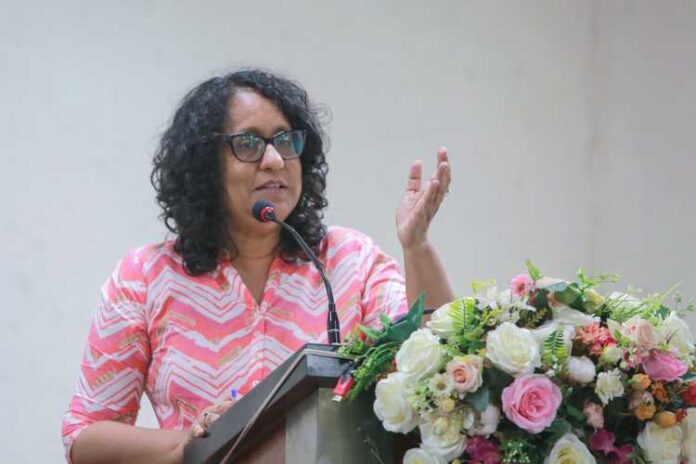August 03, Colombo (LNW): Sri Lanka’s education system is set to undergo a far-reaching transformation, with Prime Minister and Minister of Education Dr Harini Amarasuriya calling for a united national effort to bring meaningful change to the way children are taught and supported throughout their schooling journey.
Addressing an awareness event held on the 2nd of August, Dr Amarasuriya stressed that the reforms being proposed are not confined to the agendas of government ministries or political leadership alone. Rather, she framed them as a collective national mission, urging citizens from all walks of life to take ownership of the process.
“The present education system is not inspiring hope or confidence in our students. Many complete school with a sense of disillusionment rather than anticipation about their future. That is not acceptable,” she said, noting the emotional and psychological toll the current framework has on young learners.
Dr Amarasuriya outlined a vision centred on creating learning environments that prioritise both academic success and personal development. She emphasised that the system must go beyond traditional exam-based outcomes and foster creativity, curiosity, and resilience in students. The aim, she said, is to nurture not just scholars, but capable and compassionate individuals—doctors, engineers, scientists, artists, and entrepreneurs—with practical skills that can serve both society and the economy.
Equity was a recurring theme in her remarks. The Prime Minister insisted that all regions, including historically marginalised or underfunded districts, must receive fair attention in the rollout of the reform. Equal access to quality education, she argued, is a fundamental requirement if the nation is to move forward as a whole.
She outlined key infrastructure priorities, including the need to equip every school with up-to-date digital tools, functioning sanitation facilities, reliable water supplies, laboratories, arts and innovation spaces, and properly maintained classrooms and sports grounds. Addressing the persistent shortage of teachers was also highlighted as a top priority.
While the government has developed a structured, phased approach—with changes to Year 1 and Year 6 curriculum set to begin in 2026—Dr Amarasuriya made it clear that long-term success hinges on broad public involvement. “This reform belongs to the people. It cannot be something handed down from above—it must be shaped through ongoing dialogue and active participation from educators, unions, parents, universities, and civil society.”
She also acknowledged the complexity of the task ahead, noting that piecemeal change will not suffice. “This is not a cosmetic adjustment. What we are embarking on is a complete reimagining of how education is delivered in this country.”
Closing her remarks, she issued a powerful appeal for solidarity: “Every child in this country is our collective responsibility. Let us work together—not just to fix a system, but to give our children the future they deserve.”

